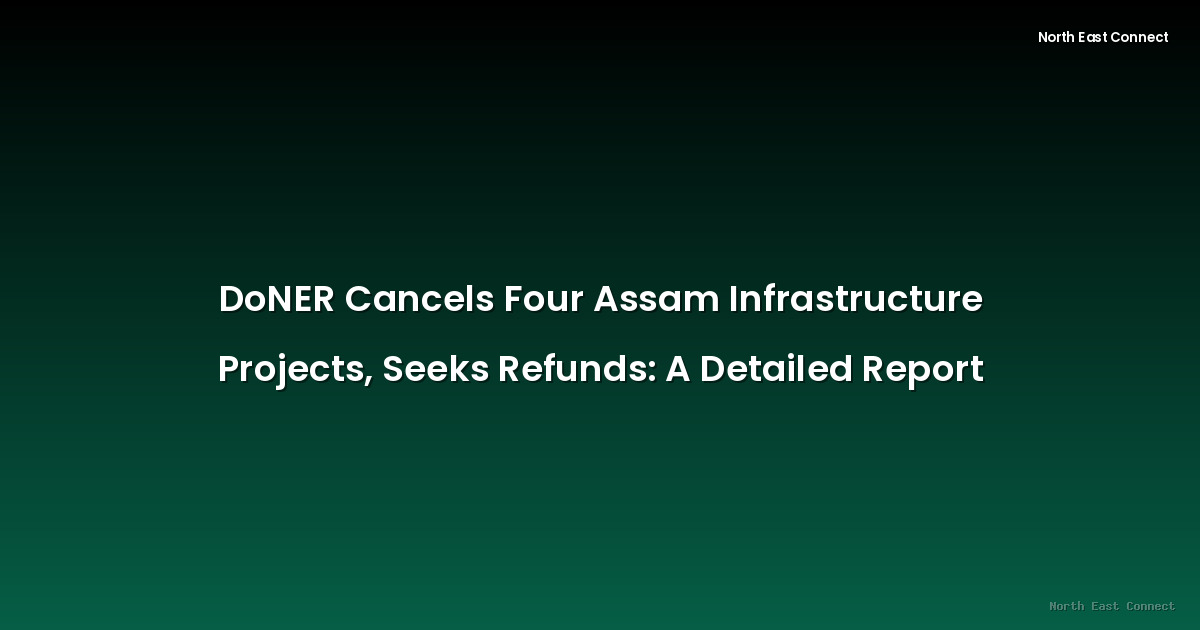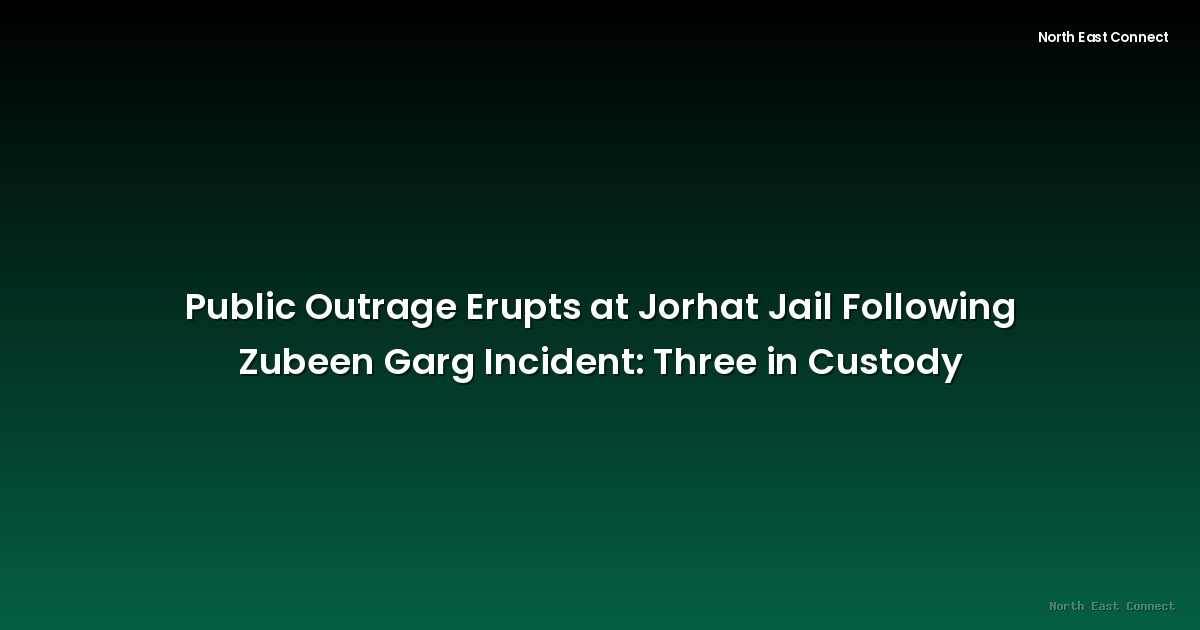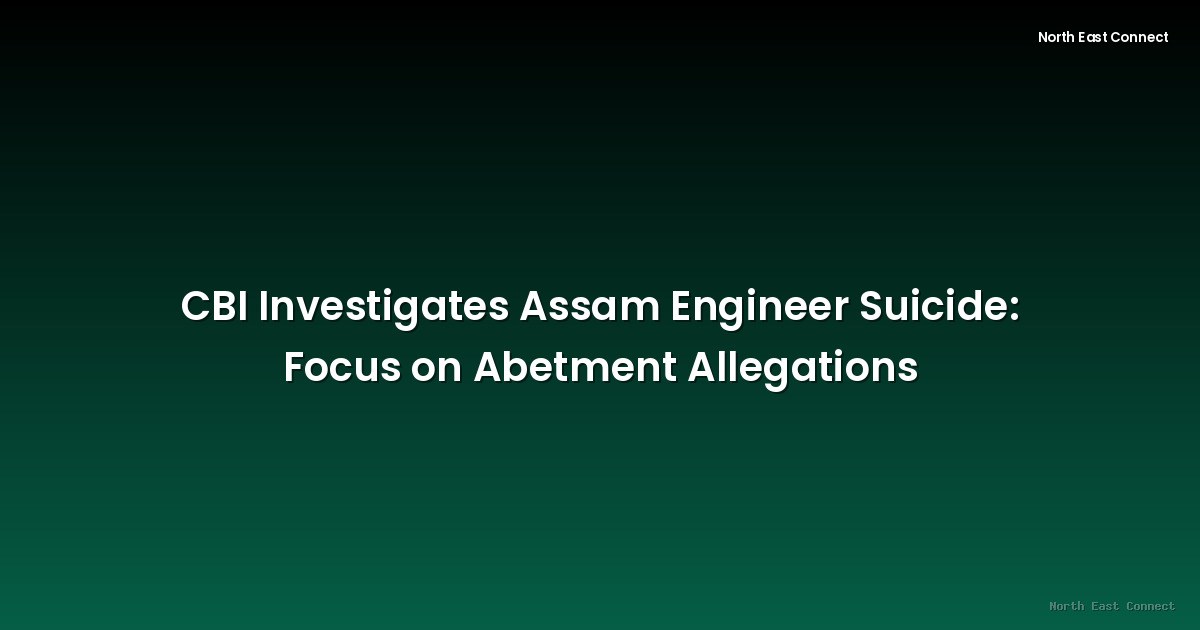2025-08-26 · News
The Ministry of Development of North Eastern Region (DoNER) has taken the significant step of cancelling four infrastructure projects in Assam. This decision, which involves demanding a refund of the allocated funds, has raised questions about the implementation and oversight of these projects. Two of the cancelled projects are located in the Dima Hasao district, a region known for its challenging terrain and infrastructure needs.
The precise reasons behind the cancellation of these projects haven't been explicitly detailed in official statements. However, reports suggest that irregularities, cost overruns, or failure to meet project milestones may have played a role. The lack of transparency surrounding the specifics necessitates a deeper examination of the procurement processes and project management involved.
The cancellation of these projects carries significant implications for the development landscape of Assam, particularly in Dima Hasao. These infrastructure projects, presumably aimed at improving connectivity, public services, or economic activities, are now stalled, potentially delaying progress in the region. The financial implications are also substantial, as DoNER is actively pursuing the recovery of funds already disbursed.
The demand for a refund signals a firm stance by DoNER towards accountability and efficient use of public funds. It suggests a renewed focus on transparency and the need for thorough vetting of infrastructure projects before their commencement. This action might serve as a deterrent against future irregularities and encourage more rigorous planning and execution. The process of recovering funds, however, could prove challenging, requiring meticulous documentation and legal processes.
The impact on local communities directly affected by the cancelled projects remains to be seen. The disruption of work, potential job losses, and delayed benefits intended by these projects need to be carefully considered and addressed. Whether alternative solutions are being explored to achieve the same developmental goals remains unclear.
This situation highlights the complexities involved in large-scale infrastructure projects, especially in geographically challenging regions. Effective planning, transparent procurement, robust monitoring, and accountability mechanisms are crucial to ensure the success of such endeavors. The lessons learned from this instance should inform future project implementation strategies to minimize similar occurrences. Furthermore, independent reviews and audits of these cancelled projects could shed more light on the root causes of the failures and prevent similar issues in the future.
The details surrounding the specific projects involved, including their intended purpose and the total amount of funding allocated, warrant further investigation. Official releases of this information by DoNER will provide much-needed clarity and allow for a more comprehensive assessment of the situation. The focus should be on learning from the shortcomings and implementing improvements to ensure that future projects are planned, executed, and monitored more effectively.
The development of the Northeast region hinges on successful infrastructure projects, and this incident underscores the importance of efficient governance and proactive measures to prevent future setbacks. The long-term consequences of this decision will be closely watched, and any measures taken to address the impact on affected communities should be critically assessed for their effectiveness. It is crucial to ensure accountability and transparency throughout the entire project lifecycle to build stronger, more resilient infrastructure and achieve sustainable regional development.







